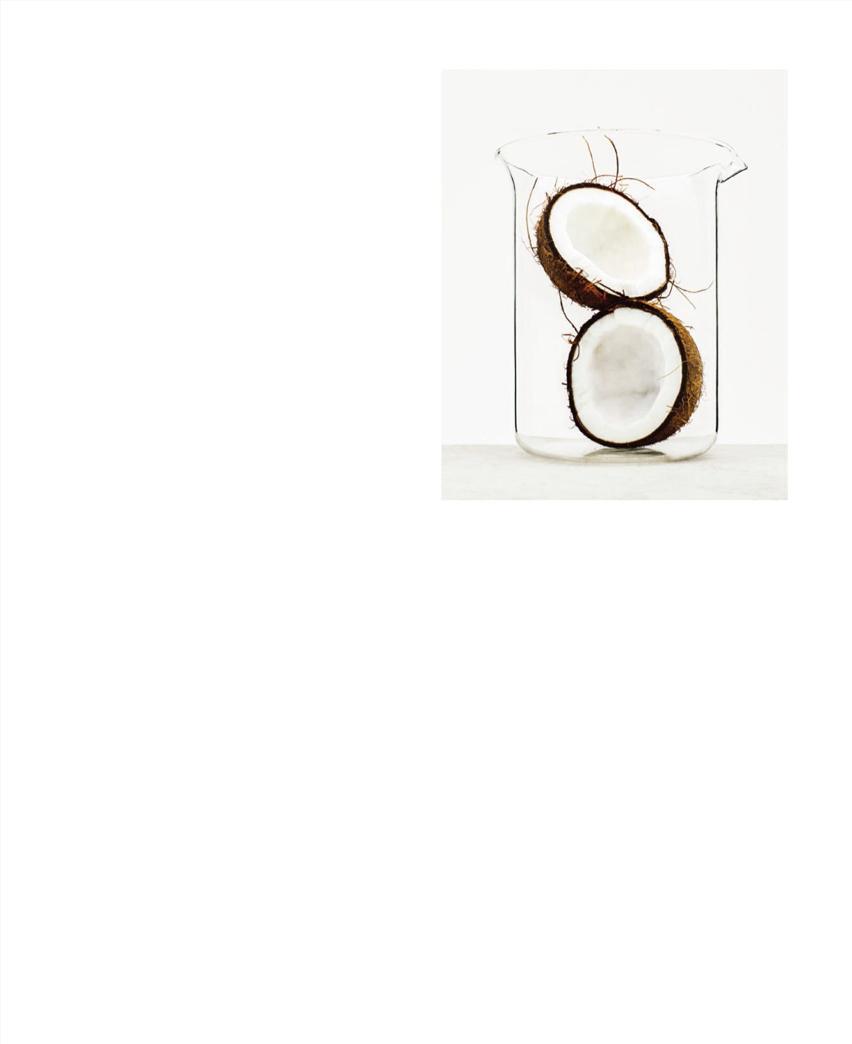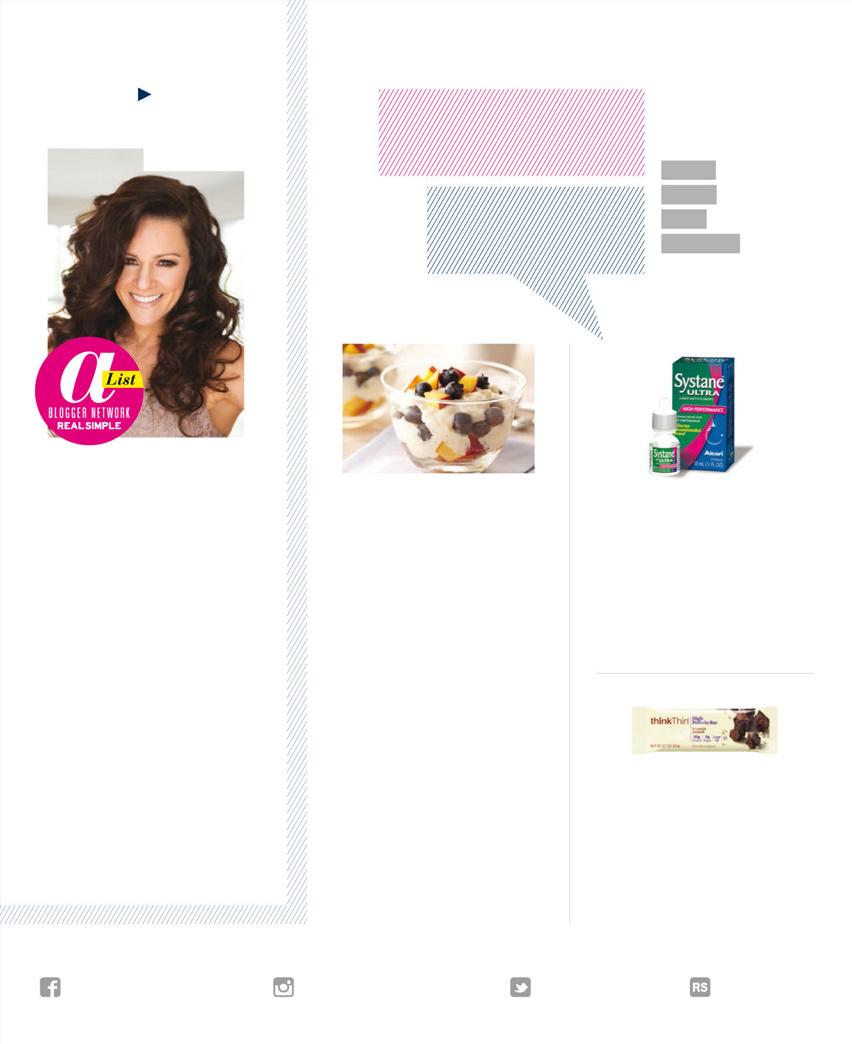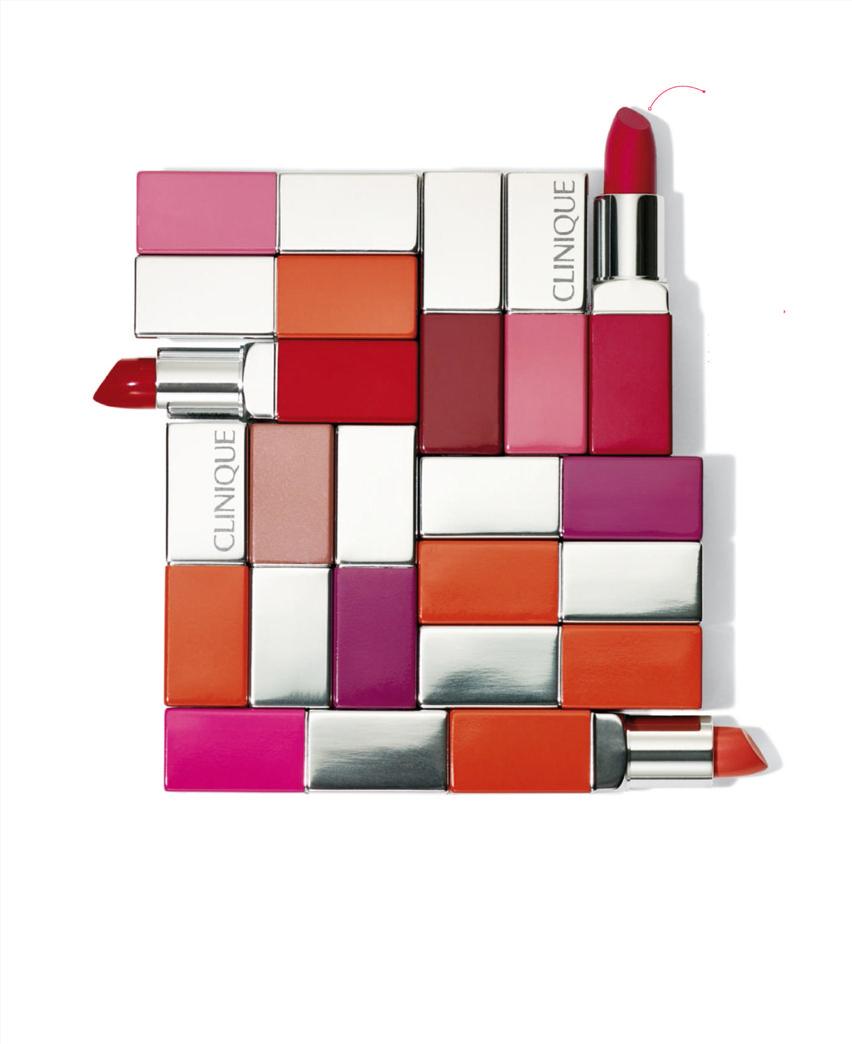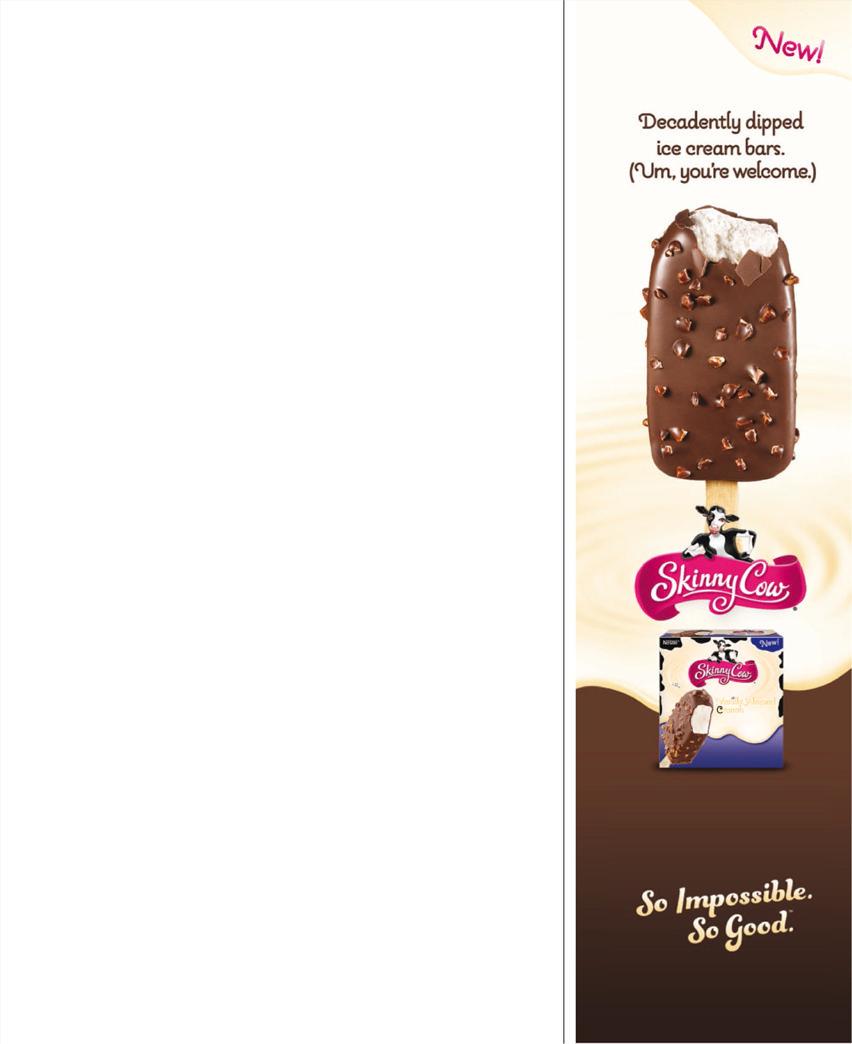
7 minute read
ROAD TEST
from RS - June 2015
health
are
Advertisement
you feeling sluggish, achy, or otherwise, well, mediocre? Before you reach for one of the bottles in your bathroom cupboard, know that there may be a better way. Hundreds of scientific studies now confirm what holistic doctors, alternative-medicine experts, and your grandmother have known for years: Minerals, plant-based medicines, and many of the foods you already have in your kitchen have the potential to heal you as effectively as pharmacological options—and, in many cases, without the side effects
that can come with prescriptions and over-the-counter (OTC) drugs. “Americans take more pharmaceuticals than any other culture in the world today, and we aren’t any healthier for it,” says Chris Kilham, an ethnobotanist in Loverett, Massachusetts, and the author of Tales From the Medicine Trail. Herbs and plants sometimes offer a safer route to good health, he adds.
So where to start? First, when browsing the aisles at your local health-food store, keep in mind that not all natural remedies are created equal. The U.S. Food and Drug Administration (FDA) doesn’t regulate vitamins, minerals, and herbal supplements the same way that it does over-the-counter drugs, and when the agency does catch problems, “yanking products from shelves can take months, if it happens at all,” say Pieter Cohen, M.D., an internist at Cambridge Health Alliance, in Somerville, Massachusetts, and a leading expert on supplement safety.
There’s a lot you can do to reduce your risk of buying ineffective or contaminated supplements. “Avoid anything that makes health claims like ‘sexual enhancement’ or ‘joint protecting,’” says Pieter Cohen. Companies don’t have to prove the claims, and hyped supplements often contain subpar ingredients in amounts that differ from the label.
Similarly, skip multiple-ingredient products, like herbal blends. Studies by ConsumerLab.com, a company that provides independent test results on supplements, have shown that they tend to have the highest rates of contamination.
Also steer clear of any product labeled “proprietary blend.” That means the maker doesn’t have to list the amount of each ingredient, so you won’t know how much you’re getting. Instead, look for the NSF International or U.S. Pharmacopeial Convention (USP) certification or verification. Both organizations conduct stringent testing for label accuracy and product purity.
Finally, some supplements can interfere with prescription and OTC medications or may not be safe if you’re pregnant, nursing, or have a medical condition. Check with your physician or pharmacist before taking them.
Once you get your doctor’s go-ahead, consider these researchbacked, expert-approved solutions that can help you boost your health— naturally.
FOR YOUR BRAIN
BUTTERBUR: People who supplemented with this herb reduced migraine frequency by 48 percent in four months, found a 2004 Neurology study. No surprise, the American Academy of Neurology and the American Headache Society gave butterbur a Level A rating—the highest for migraine prevention. Scientists think it may reduce headache-triggering inflammation. DOSE: 50 to 75 milligrams twice a day. CHECK THE LABEL: Choose an extract containing 7.5 percent petasin that’s free of pyrrolizidine alkaloids, which can harm your liver.
MAGNESIUM: This mineral, which plays a role in hundreds of bodily functions, may help prevent migraines and relieve insomnia by relaxing blood vessels and muscles. It’s also helpful if you’re prone to sleep-disturbing leg cramps. DOSE: 200 to 400 milligrams of magnesium citrate daily. CHECK THE LABEL: Choose magnesium citrate. Avoid supplements labeled “magnesium oxide,” which can cause diarrhea.
MELATONIN: Insomnia? Research shows that a nightly dose of melatonin can help reset your body’s circadian rhythms (your internal clock) and improve your slumber. Melatonin, which is a hormone that your body also makes on its own, works by suppressing cortisol, the “stay awake” stress hormone. DOSE: Take 0.3 to 1 milligram an hour and a half before bed. If you don’t see an improvement, gradually increase to 3 milligrams over the course of several weeks. Stop using it once your sleep improves. CHECK THE LABEL: Time-release formulas work best.
RHODIOLA: This may be the most useful herb you’ve never heard of. Native to
THE EXPERTS
SUZY COHEN, R.PH.,
licensed pharmacist, functional-medicine practitioner, and author of Drug Muggers: Which Medications Are Robbing Your Body of Essential Nutrients—and Natural Ways to Restore Them. (suzycohen.com)
TOD COOPERMAN,
M.D., founder of Consumer Lab.com, which provides independent test results on nutritional supplements.
CHRIS KILHAM,
founder of Medicine Hunter, Inc., and author of Tales From the Medicine Trail: Tracking Down the Health Secrets of Shamans, Herbalists, Mystics, Yogis and Other Healers. (medicinehunter.com)
TIERAONA LOW DOG,
M.D., chair of the U.S. Pharmacopeial Convention Dietary Supplements Admissions Committee, author of Healthy at Home: Get Well and Stay Well Without Prescriptions, and former member of the White House Commission on Complementary & Alternative Medicine Policy. (drlowdog.com)

health Eurasia, it reduces stress and fatigue, improves mental focus, and fights depression, according to at least a dozen studies. It appears to work by reducing stress hormones, such as cortisol. DOSE: Rhodiola can be stimulating, so start with 150 to 250 milligrams each morning for five days, then increase gradually to 300 to 500 milligrams a day. CHECK THE LABEL: Choose extracts that contain 3 to 5 percent rosavin and 0.8 to 1.0 percent salidroside.
SAGE: Studies show this common herb, in supplement form, improves mood and memory. Sage seems to have a positive impact on the brain’s neurotransmitters. DOSE: 400 milligrams daily.
FOR YOUR EYES
LUTEIN AND ZEAXANTHIN: Found in leafy green vegetables, this antioxidant duo accumulates in the retinas, the lightsensitive tissue of the eyes, where it prevents damage that could otherwise cause age-related macular degeneration (AMD). Studies conducted at the National Eye Institute showed that a daily lutein and zeaxanthin supplement may reduce the risk of AMD by up to 20 percent. DOSE: Opt for a supplement containing 10 milligrams of lutein and 2 milligrams of zeaxanthin, or eat one cup of cooked kale, spinach, or collard greens a day. Heating these vegetables makes it easier for the body to absorb the nutrients.
OMEGA-3 FATTY ACIDS: These ultrahealthy fats (found in fatty fish, flaxseed, and walnuts) may protect the retinas from inflammation and reduce the risk of age-related vision problems, according to a 2011 Journal of Nutrition and Metabolism study. Omega-3’s also help lubricate dry eyes. DOSE: Fatty fish, like salmon and mackerel, is the best source of omega-3’s. Eat two to three four-ounce servings a week, or supplement daily with 500 to 1,000 milligrams of EPA and DHA, which are beneficial, fish-based forms of omega-3 fatty acids.
FOR YOUR NOSE AND SINUSES
BUTTERBUR: Butterbur relieves seasonal allergies by shrinking swollen nasal membranes and blocking the release of histamine, the chemical that triggers sniffles. Several studies have shown that butterbur can be as effective as popular allergy drugs. DOSE: 50 to 75 milligrams twice a day. CHECK THE LABEL: Choose an extract that contains 7.5 percent petasin and that’s free of pyrrolizidine alkaloids.
ECHINACEA: Made from purple coneflowers, echinacea contains phytochemicals that may possess antiviral activities and stimulate the immune system. That’s why research shows it may reduce the severity and duration of a cold. DOSE: 700 milligrams three to four times during the day until symptoms like sniffing and coughing have cleared up.
COCONUT OIL Once scorned for its saturated fat, coconut oil is now a bona fide health food. Not only does it play a role in weight loss and heart health but researchers are also investigating whether it may help treat dementia.
CHECK THE LABEL: Buy Echinacea purpurea, which is made from the aboveground parts of the coneflower.
ZINC: This mineral prevents cold-causing viruses from multiplying, which is why it can shorten the duration of a cold by a full day, especially if you take it in the first 24 hours after you become ill. DOSE: The minute you feel the tingle of a cold, suck on zinc lozenges containing 13 to 23 milligrams of zinc gluconate or zinc acetate every two to three hours. Zinc can leave a metallic taste in your mouth and cause an upset stomach, but if you use it only while you’re sick, the side effects will disappear once you stop taking it. Don’t take zinc for more than 10 days, as it can inhibit absorption of copper.
FOR YOUR MOUTH
VITAMIN B12: Frequent canker sores? Supplementing with this B vitamin could help. Experts aren’t sure why, but some believe canker sores are a sign of a B12 deficiency. DOSE: Take 1,000 micrograms before bed.
LEMON BALM: Applying lemon-balm cream to a cold sore right after it surfaces helps it to heal faster, according to research published in the journal Phytomedicine. Scientists speculate that the mintlike herb has antiviral properties. DOSE: Apply one drop of lemon-balm essential oil or a cream containing 1 percent lemon-balm extract five times a day.
FOR YOUR HEART
CHOCOLATE: A daily dose of the dark stuff may reduce the risk of atherosclero-










